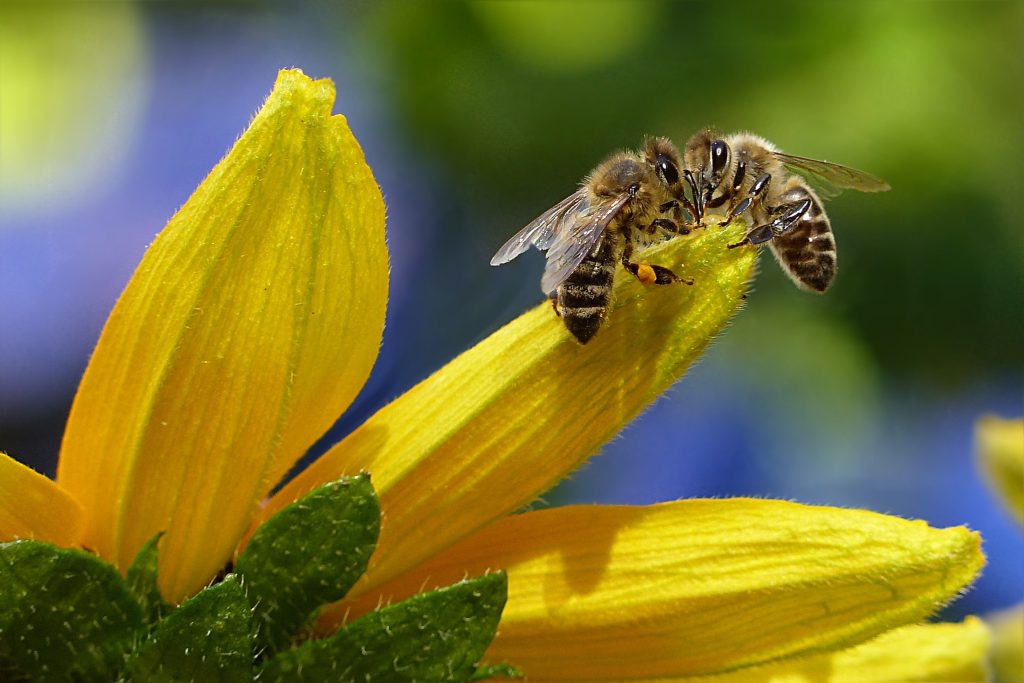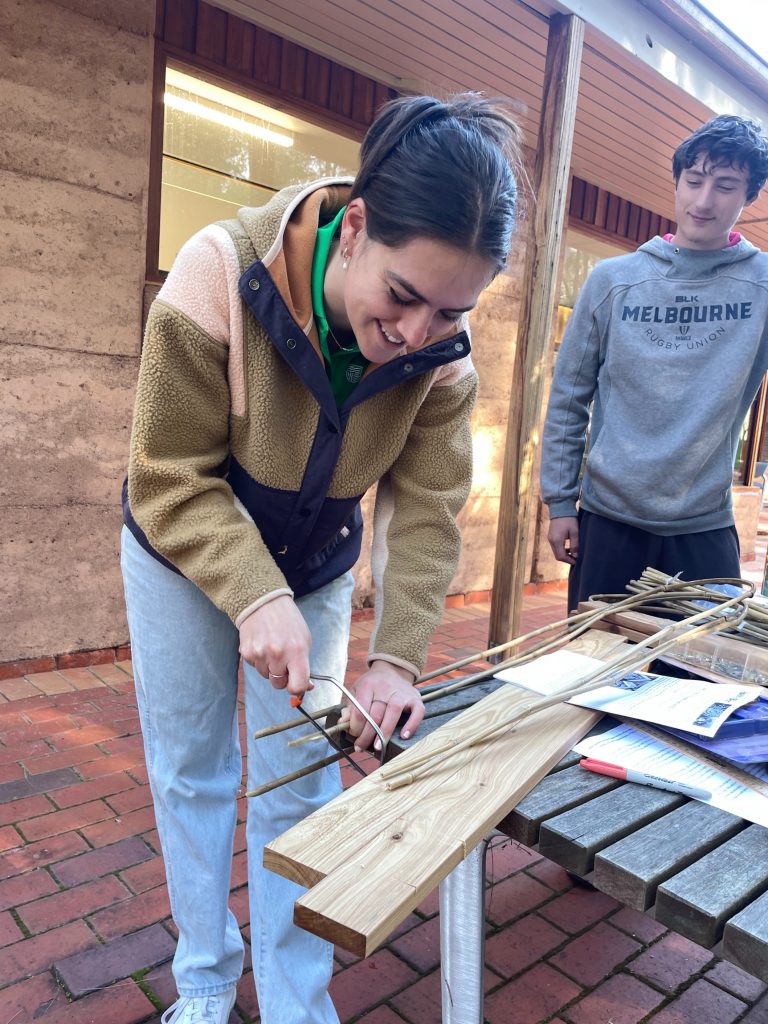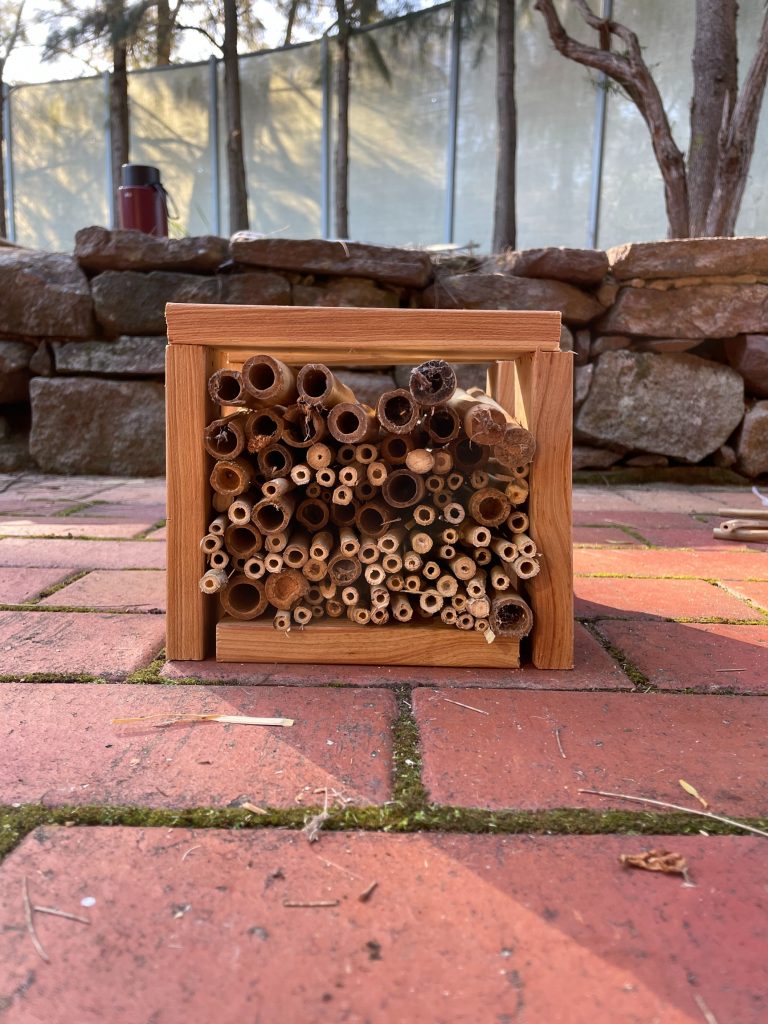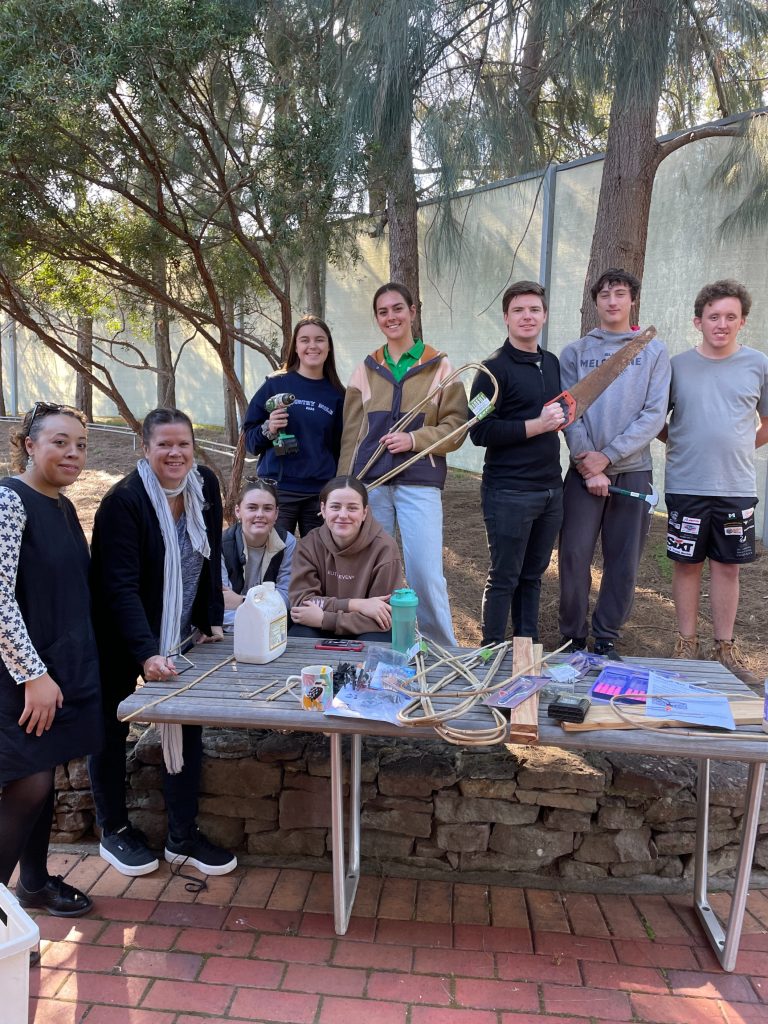Written by Bec Groat
World Bee Day is celebrated on the May 20 every year. It is a chance to celebrate, educate and appreciate one of the world’s most important pollinators.
Around the world, bees play a vital role in food security, biodiversity, and ecosystem health.
What exactly do bees do?
Not only do bees provide us with honey, but they are also responsible for nearly two-thirds of Australia’s agricultural production. Bees pollinate the crops we eat and the crops of our livestock.
The presence of bees when a crop is flowering can significantly increase yield and quality of produce; worldwide, pollinators support the production of 87 leading food crops.
When bees collect nectar from flowers, pollen (male reproductive cells) rubs against the visiting bee and is transferred to the stigma (female reproductive cells) of another flower.

After pollination, plants can create fertile seeds, fruits and reproduce with greater genetic variability.
These little bees are responsible for the survival and reproduction of thousands of plants, and consequently, countless ecosystems around the world- and the bees don’t even know it.
Honey bees are the worlds largest pollinator of non-crop plants, pollinating many wild-flowers and native vegetation.
Pollination:
- Increases plant diversity
- Supports other ecosystem services such as air and water quality control
- Builds nutritious soil
- Recycles nutrients
- Even regulates the climate!
Furthermore, highly diverse vegetation is vital for the health and survival of ecosystems and many native animals.

Under Threat
In Australia, there are over 2000 species of native bees.
Worldwide, there are over 20 000!
However, our bees are declining and are under threat from many human-caused problems. Climate change is one of the biggest threats, as changing weather patterns and severe climates are disrupting reproduction and life cycles of bees.
Change in climate is also resulting in poor environmental conditions, reducing suitable habitats for bees.

Land-clearing and increased urbanisation is also decreasing viable options for bee populations. Natural habitats are being transformed into agricultural and urban land and bees are running out of places to relocate.
Agricultural practices such as planting large crops of one variety results in bee malnutrition, making effective pollination difficult to perform.
The use of insecticides results in mass decline of bee populations and other important pollinators.

Celebrating Bee Day
To celebrate and support our bees, Albury Enviro Club is creating “bee hotels”- a safe shelter for native bees.
Most native bees do not need a hive for survival but often dig tiny narrow tunnels in the ground, decaying wood or other natural structures.
Bee hotels are ready-made homes that provide instant shelter and safety for our native bees and increase pollination of surrounding vegetation. Not only are we helping little bees’ populations, but we are also increasing pollination and biodiversity on campus.
If you want to celebrate World Bee Day and support our native bees, there are many things you can do!
- Plant native plants species in your garden
- Create bee hotels
- Minimise the use of insecticides
It is important to remember that if everybody played a small part in helping bees, the world would be a much greener, more diverse, and beautiful place!











